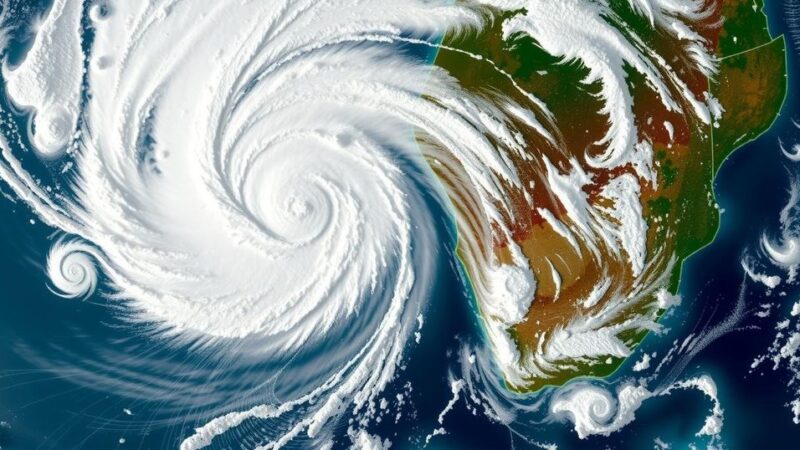A 6.8 magnitude earthquake struck eastern Cuba on Sunday, exacerbating the challenges faced by residents after recent hurricanes and ongoing blackouts. Although the quake was felt in major cities like Santiago de Cuba, no immediate injuries or damages were reported. The island is already reeling from Hurricane Rafael’s aftermath and a continuing energy crisis, leading to widespread discontent among its citizens.
On Sunday, a 6.8 magnitude earthquake struck eastern Cuba, compounding the hardships faced by residents following recent hurricanes and widespread blackouts. The epicenter was identified approximately 25 miles south of Bartolomé Masó, as reported by the United States Geological Survey. The tremors were distinctly felt in major urban areas including Santiago de Cuba, where many residents were reported to be shaken but uninjured. In Santiago, members of the community reacted with concern. Yolanda Tabío, a 76-year-old resident, described the atmosphere as tense with people spilling onto the streets and nervously situated in their doorways. Ms. Tabío recounted that she experienced at least two aftershocks and, despite the widespread fear, had not learned of any reported damages among her family and friends. “You had to see how everything was moving, the walls, everything,” she remarked to The Associated Press. This earthquake comes amid a series of recent calamities for Cuba. On the preceding Wednesday, Hurricane Rafael, a Category 3 storm, wreaked havoc on western Cuba, resulting in extensive power outages, destruction of homes, and compulsory evacuations affecting hundreds of thousands. Even days later, many areas of the island continued to suffer from a lack of electrical power. Further exacerbating the situation were occasions of prolonged blackouts earlier in October, stemming from the island’s ongoing energy crisis and culminating in another lethal hurricane that left at least six individuals deceased in its wake. Together, these persistent challenges have incited small protests among the discontented populace struggling to survive.
Cuba has recently been facing a confluence of natural disasters and infrastructural challenges, leading to significant hardships for its citizens. The island is currently experiencing an energy crisis that has resulted in persistent power outages, triggering public unrest. This situation has been compounded by the impact of hurricanes that have caused evacuations, extensive destruction of property, and loss of life. The recent earthquake adds another layer of distress to a already beleaguered nation.
In summary, the 6.8 magnitude earthquake in eastern Cuba adds to an already difficult period for the island’s residents, following the ravages of Hurricane Rafael and extended blackouts linked to an energy crisis. While there were no immediate reports of physical injuries or infrastructural damage, the psychological impact on the population is palpable, further intensifying the current climate of unrest and hardship. The cumulative effects of these disasters underscore the urgent need for systemic improvements in disaster preparedness and energy management throughout Cuba.
Original Source: www.cbsnews.com







